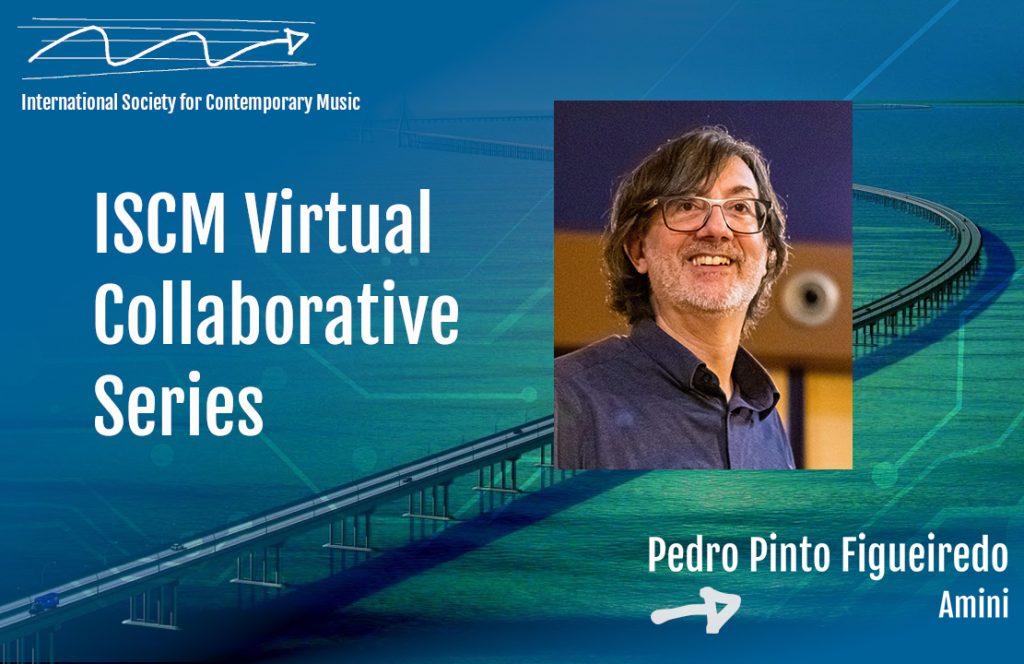Pedro Pinto Figueiredo: Amini

Pedro Pinto Figueiredo (b.1966), conductor and composer born in Lisbon. He studied Composition at the Escola Superior de Música de Lisboa (Superior Music School of Lisbon) with the composer Christopher Bochmann, and Constança Capdeville. As a Calouste Gulbenkian scholarship holder, he studied in Paris with the composer Emmanuel Nunes. There, he simultaneously participated in and finished several courses at the IRCAM. Some of his most relevant musical productions have been Germinal for piano and wind octet, Wake for bass clarinet, Ser for string orchestra, and Scindite for bass clarinet, contralto and string orchestra. The focus on his musical research has been the use of new technologies, mainly on sound treatment in real time and its spatialization, and extended instrumental techniques. As conductor, he studied with Jean-Sébastien Béreau, having also worked and collaborated with Maestro Peter Rundel and Maestro Emílio Pomarico in the field of contemporary music conducting. In 2009, he premiered the work La Douce by Emmanuel Nunes as second conductor. Since 1992 he’s been teaching composition and analysis at several music conservatories, including the Superior National Orchestra Academy (Academia Nacional Superior de Orquestra– ANSO), where he has also taught orchestration and serves on the board of directors. He’s also currently the headmaster of a music school in Linda-a-Velha, Lisbon.
About his 2022 composition Amini for two flutes (bass and alto), the composer has written: We live in a world where reality is perceived through a chattering hyper communication, never achieving depth or being vulnerable enough to be present and pay attention to the other. This requires an openness only possible in silence: the one who listens does not speak. Writing this piece coincided with the torture and murder of Iranian activist Mahsa Amini. This brought about a reflection on the contrast between the suppression of sound and the need for it to be heard and listened to – in depth, peacefully, quietly. Silence can be oppressing, like a stifling buzz, but can also be open and giving. This piece consists of two parts: the first is characterized by an urgent search for sound (bass flute), and the second by the timbre and rhythmic patterns that emerge from the awareness and availability of the silence to be filled (alto flute). Some articulations were inspired by the phonetics of modern Persian words, mixing sign and meaning, reality and abstraction. Amini is a document of violence, a way to capture and filter it to be felt through the ages, to be listened to and perpetuated. This is not my story, my pain, nor am I the one being silenced, but the screams are so unbearable, I cannot simply hear them without getting involved. Music is my contribution to amplify them.
performed by the Ipsis Duo (Clara Saleiro & Marina Camponês) at the Música Viva 2022 Festival
